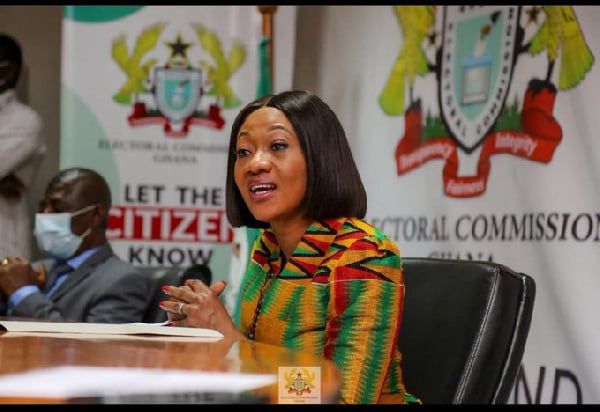The New Patriotic Party (NPP) has vehemently contested the Electoral Commission’s (EC) decision to conduct a re-run of parliamentary elections in 19 polling stations within the Ablekuma North constituency. The crux of the NPP’s argument centers on the legality of the EC’s action, asserting that the electoral body lacks the inherent authority to order fresh polls in an election it has already administered. They maintain that only a court of competent jurisdiction, and not the EC itself, possesses the legal power to mandate such a re-run. This stance was forcefully articulated by NPP General Secretary Justin Kodua Frimpong, who characterized the EC’s move as both “unlawful and disingenuous,” emphasizing that no existing Ghanaian law grants the EC such authority.
The EC’s rationale for the proposed re-run hinges on the alleged inclusion of unverified results in the initial collation process. This explanation, however, hasn’t appeased the NPP, who view the action as a blatant disregard for legal procedure. Instead of proceeding with the re-run, the NPP is urging the EC to adhere to a previous High Court order issued in January 2025, mandating the completion of the collation process for the remaining three polling stations. They point to confirmations given to Parliament by EC officials, reaffirming their commitment to this court order, further strengthening their argument against the re-run.
This ongoing electoral impasse in Ablekuma North stems from disruptions that occurred during the 2024 elections, which effectively halted the collation process. The resulting uncertainty has left the constituency without a declared parliamentary representative. The NPP, however, maintains that their candidate, Nana Akua Owusu Afriyieh, secured victory with 34,613 votes, surpassing the 34,199 votes they claim were garnered by the National Democratic Congress (NDC) candidate, Ewurabena Aubynn. This conviction reinforces their belief that a re-run is unnecessary and that the rightful outcome of the election should be recognized based on the existing, albeit incomplete, results.
The NPP has expressed its unwavering commitment to pursuing legal action to challenge the EC’s decision, signaling a deepening of the political and legal wrangling surrounding the Ablekuma North parliamentary seat. Their decision to resort to the courts underscores their belief in the strength of their legal argument and their determination to ensure that what they perceive as a violation of electoral law is rectified. This impending court battle promises to be a significant test of the EC’s authority and the interpretation of Ghana’s electoral laws.
The core issue at stake in this dispute is the balance of power between the Electoral Commission and the judiciary in overseeing electoral processes. The NPP’s contention is that the EC’s attempt to order a re-run constitutes an overreach of its authority, encroaching upon the exclusive jurisdiction of the courts to adjudicate electoral disputes and order remedies, including re-runs. This legal challenge has the potential to set a significant precedent, clarifying the boundaries of the EC’s powers and reinforcing the role of the judiciary as the ultimate arbiter of electoral controversies.
The Ablekuma North case also highlights the vulnerabilities inherent in electoral processes and the importance of transparent and accountable mechanisms for resolving disputes. The disruptions that initially hampered the collation process, coupled with the subsequent disagreement over the appropriate course of action, underscores the need for robust systems to ensure the integrity and credibility of elections. The outcome of this legal battle will likely have broader implications for Ghana’s electoral landscape, shaping future practices and potentially leading to reforms aimed at preventing similar controversies from arising again.


